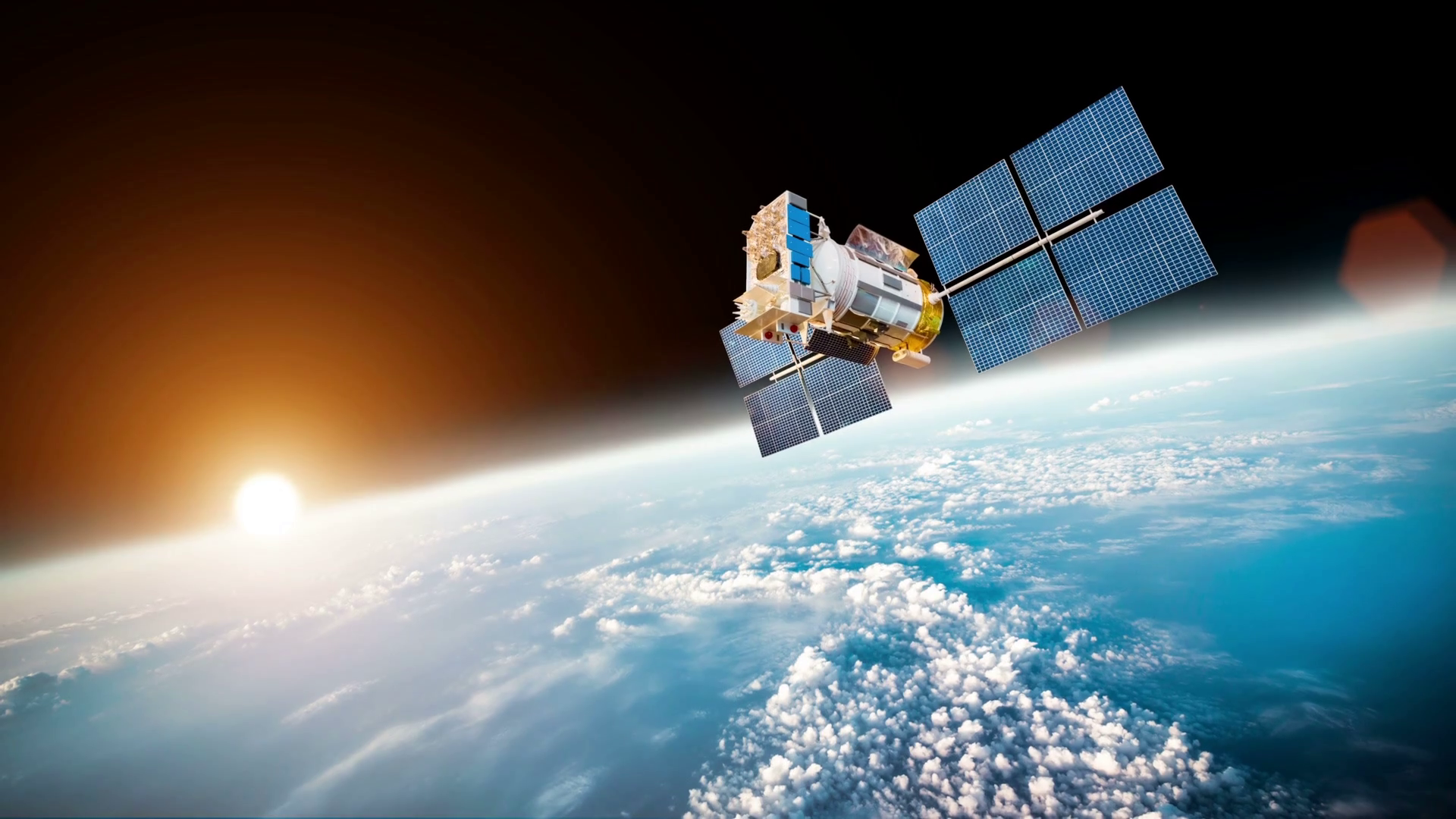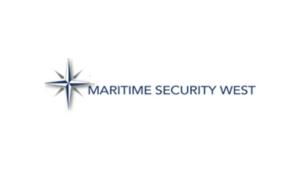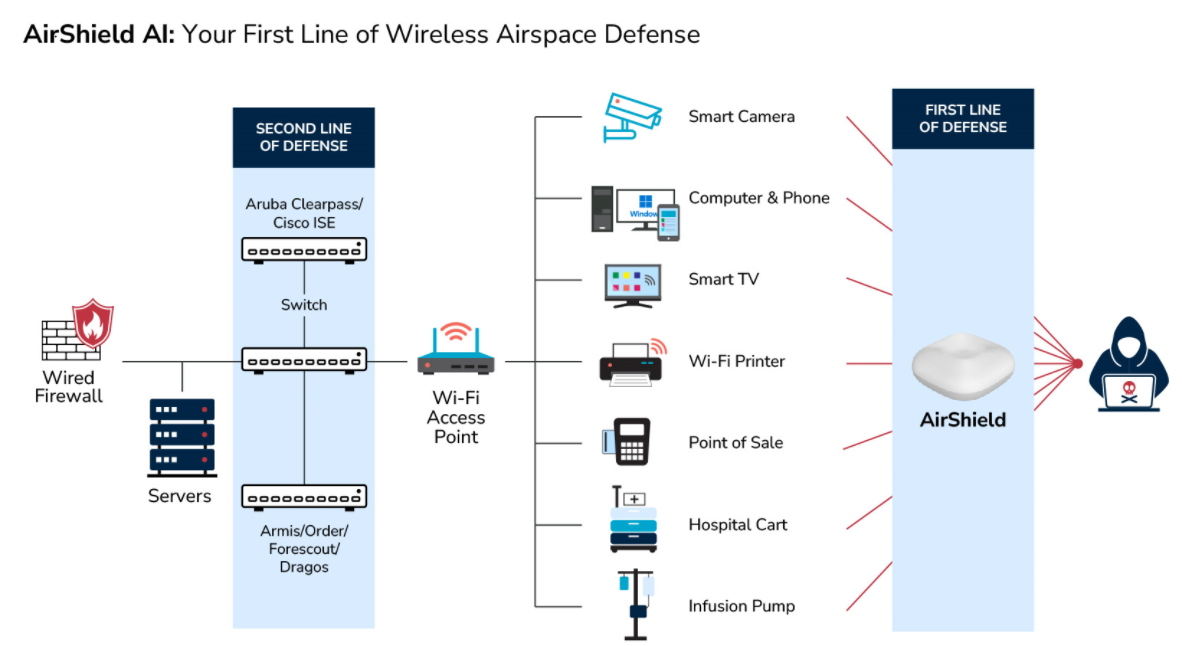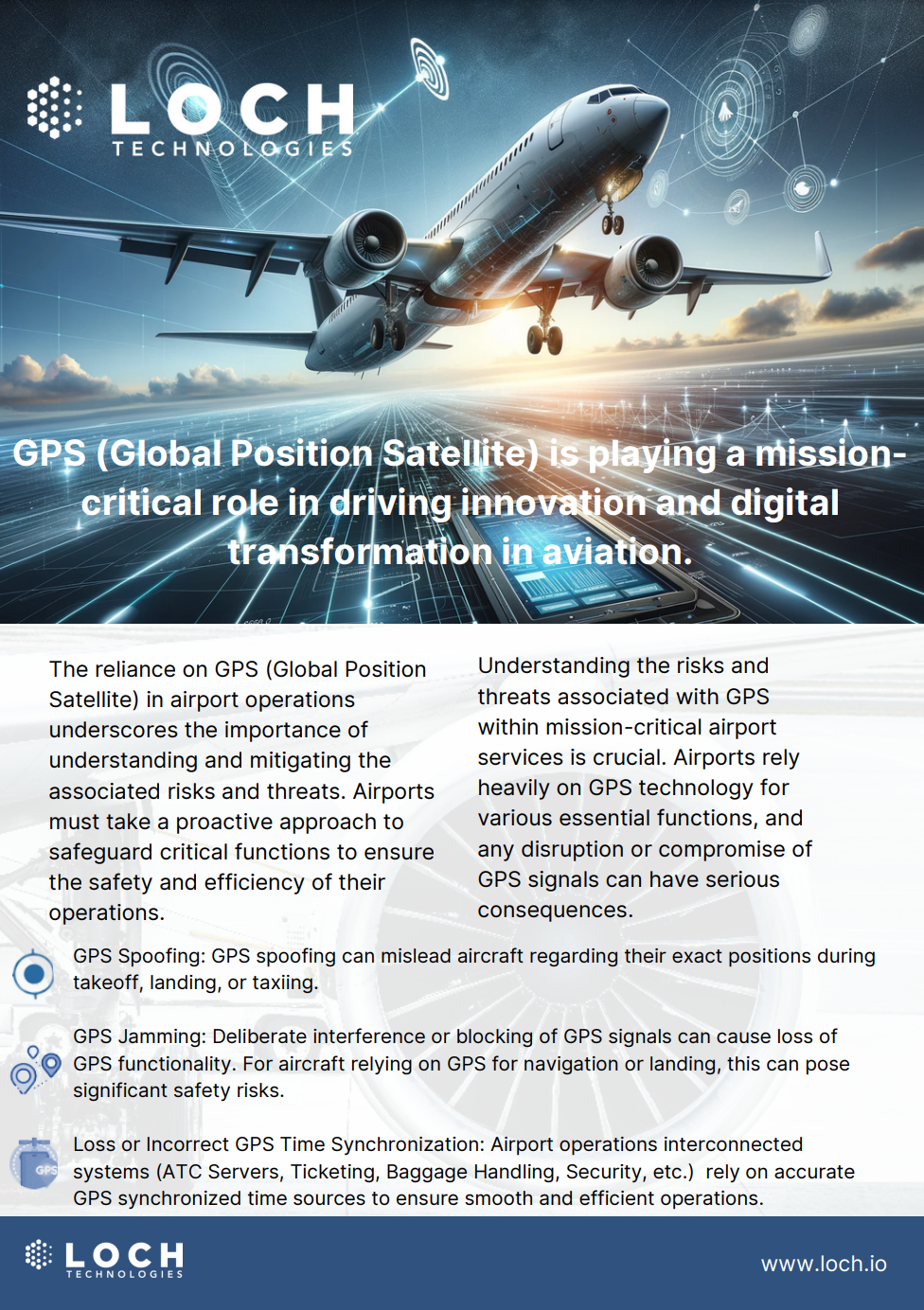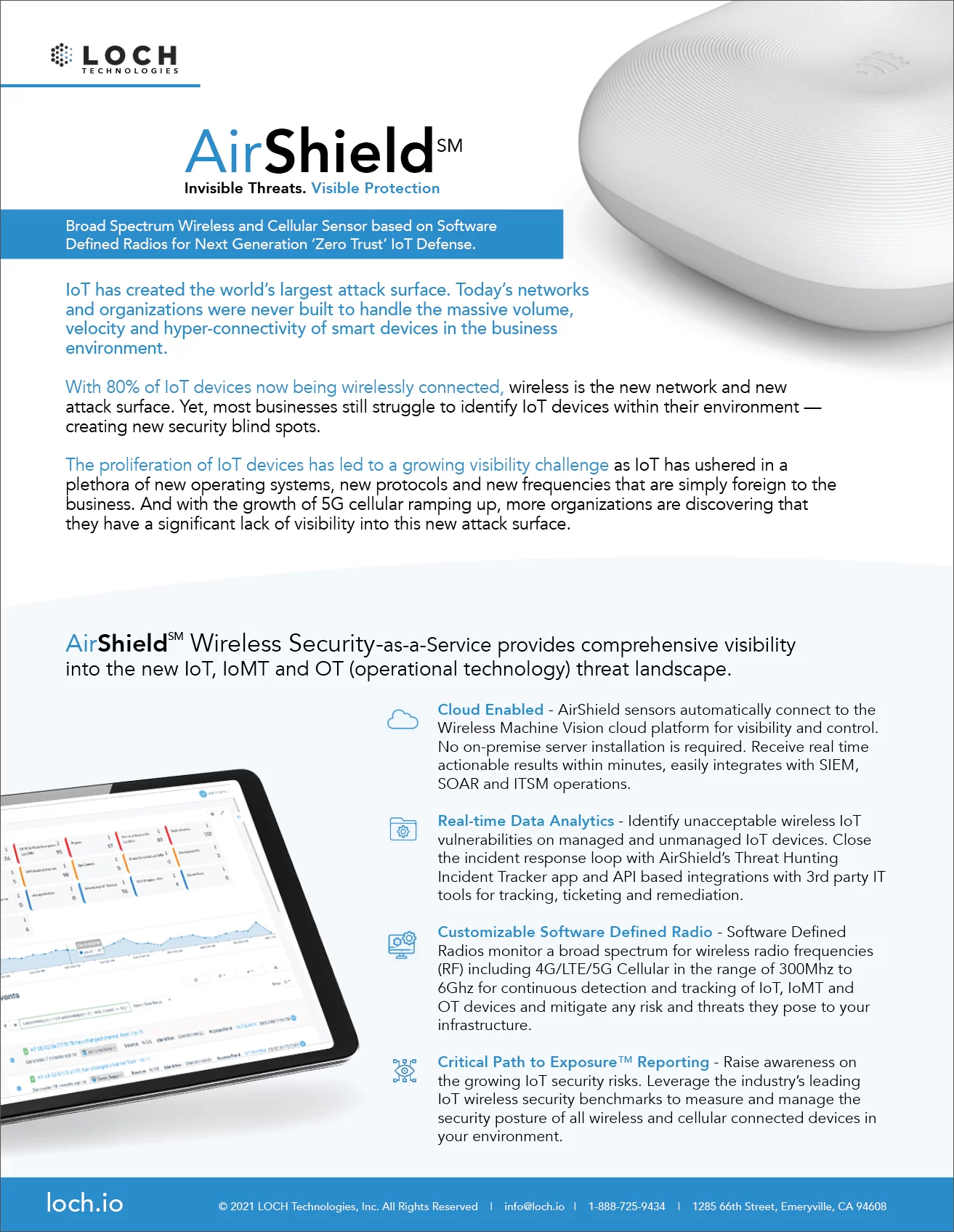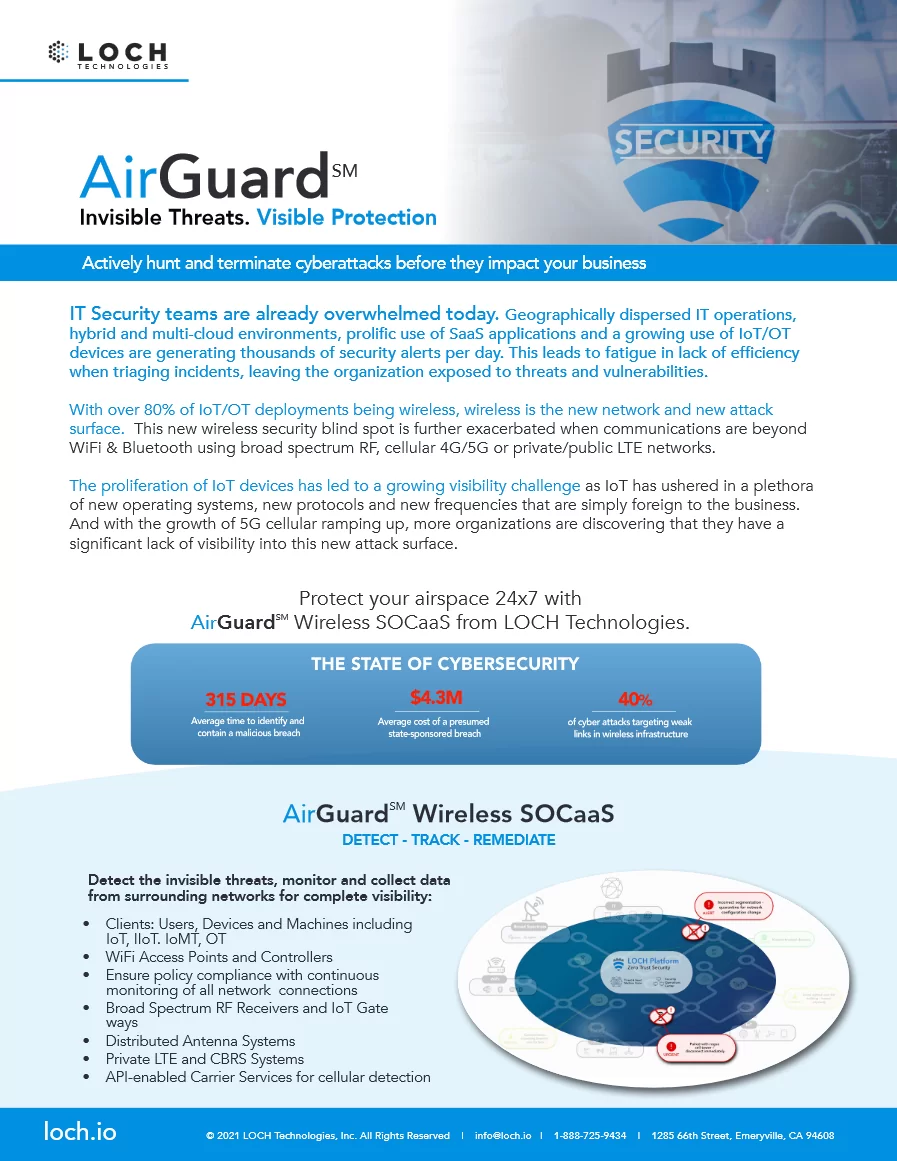Global Positioning System (GPS)
Attack Surface
GPS technology is an essential tool across industries.
Any disruption or delay could impact a variety of daily functions.

Protect your Airport from Rising GPS Spoofing Attacks
What is a GPS Attack Surface?
GPS is a precise global navigation and surveying system that relies on receiving signals from a network of satellites in orbit. GPS is used throughout society and organizations to provide oversight, management, and tracking of critical infrastructures, personnel safety, and supply chains as well as global timing and communications.
Garry Drummond, CEO and Founder of LOCH, explains the GPS attack surface and its risks and threats across industries.
The GPS attack surface refers to the various vulnerabilities and entry points that attackers can exploit to compromise or disrupt GPS systems and services.
Reliance on GPS (Global Positioning System) is essential in critical environments, emphasizing the need to comprehend and mitigate associated risks.
Several industries rely heavily on GPS technology for various essential functions. A GPS outage could significantly impact the operations of these essential services/industries and will cause a cascading impact to our daily function.
Key Industries Impacted by GPS
Aviation
The aviation industry utilizes GPS for navigation, flight planning, and air traffic management.

Maritime
Seaports utilize GPS capabilities for port logistics, navigation data, and vessel positioning


Join Us at the Security & Policing Home Office Event – Farnborough, UK, March 11th - 13th, 2025
Read More
Creating the Next Frontier in Wireless Technology: The Critical Need for Wireless Airspace Defense
Read More
The Silent Threat of Rogue Wi-Fi Networks on Navy Ships – How LOCH's AirShield Could Have Prevented a Security Breach
Read MoreWireless Airspace Defense for GPS
GPS attacks to monitor for:
GPS Spoofing
This attack involves broadcasting fake GPS signals to deceive GPS receivers into calculating
incorrect positions or timestamps.
Spoofing attacks can be used to manipulate the navigation systems of vehicles, ships, and aircraft, leading them off-course or into hazardous areas.
GPS Jamming
Jamming attacks involve broadcasting radio frequency signals to overpower and disrupt legitimate GPS signals, rendering GPS receivers unable to calculate accurate positions.
Jamming devices can be easily acquired and deployed by attackers, posing a threat to critical infrastructure, transportation systems, and military operations.
GPS Signal Interference
Interference attacks disrupt GPS signals by introducing noise or interference into the communication channel. This can degrade GPS receiver performance and affect the accuracy of position calculations.
Interference can occur unintentionally due to natural phenomena like solar flares or intentionally through malicious radio frequency interference
GPS Signal Spoofing in Financial Markets
This sophisticated attack involves manipulating GPS time signals used in financial trading systems to gain an unfair advantage in high-frequency trading.
By spoofing GPS time signals, attackers can synchronize trading activities across multiple locations with sub-microsecond precision, allowing them to exploit time discrepancies in financial markets.
GPS Denial of Service (DoS)
Denial of Service attacks target GPS infrastructure to disrupt or degrade GPS services, causing inconvenience, economic losses, and potential safety risks.
These attacks can be carried out by jamming GPS signals, interfering with GPS satellites or ground stations, or exploiting vulnerabilities in GPS receivers or networks.
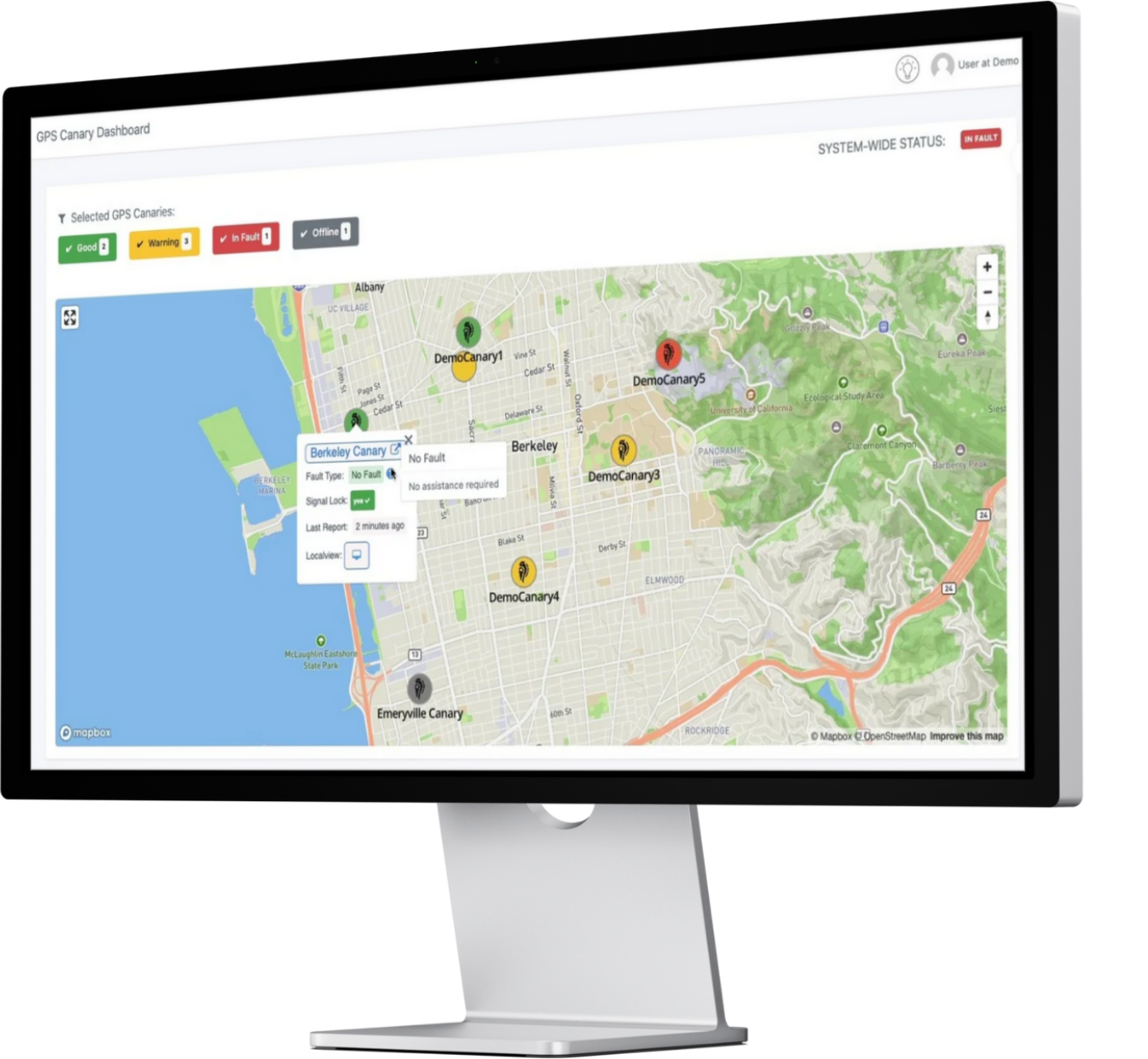
Navigating the Security Landscapes of GPS Networks
Transportation
The transportation industry relies on GPS for navigation, routing, and timing synchronization. An outage could disrupt flight paths, maritime navigation, and logistics operations, leading to delays, diversions, and potential safety risks.
Telecommunications
Telecommunications networks use GPS for timing synchronization, network synchronization, and location-based services. An outage could affect network performance, synchronization accuracy, and the delivery of location-based services, impacting communication reliability and quality.
Utilities
Utilities such as electricity, water, and gas rely on GPS for timing synchronization in their critical infrastructure, including power grid management, water distribution systems, and pipeline operations. An outage could disrupt synchronization, leading to potential service interruptions, grid instability, and operational challenges.
Emergency Services
Emergency response services, including police, fire, and medical services, depend on GPS for location tracking, route optimization, and incident coordination. An outage could impede emergency response times, hinder navigation to incident locations, and compromise situational awareness, potentially affecting public safety.
Agriculture
Precision agriculture relies on GPS for precision farming techniques, including crop monitoring, soil analysis, and automated machinery guidance. An outage could disrupt agricultural operations, affecting planting, harvesting, and irrigation schedules, and reducing crop yield and productivity.
Financial Services
The financial sector relies on GPS for timing synchronization in electronic trading systems, stock exchanges, and ATM networks. An outage could disrupt transaction processing, affect market liquidity, and lead to trading discrepancies and financial losses
Construction & Engineering
Construction and engineering industries use GPS for surveying, mapping, and equipment positioning in infrastructure projects. An outage could disrupt construction schedules, affect survey accuracy, and delay project completion, leading to cost overruns and contractual disputes.
Aviation
The aviation industry relies heavily on GPS for aircraft navigation, flight planning, and air traffic management. An outage could disrupt flight operations, affect air traffic control systems, and pose safety risks for air navigation, potentially leading to flight diversions and cancellations.
Ready to protect against GPS attacks?
LOCH Solutions to GPS Attacks


AirShield GPS Canary
Detect, monitor, and protect against GPS risks and threats


